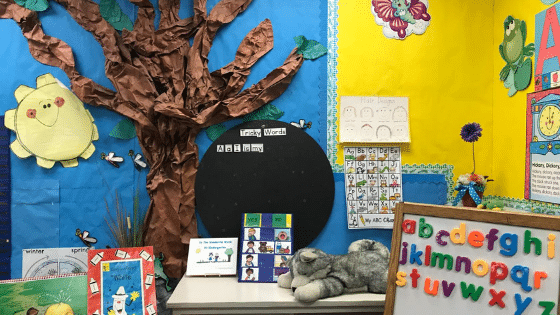Some students have difficulty staying with the task at hand. Their verbalisations seem to be irrelevant and disconnected, and their performance indicates that they are not thinking reflectively about what they are doing. Some possible ideas to try out in this situation include the following.
- Provide as much positive attention and recognition as possible
- Clarify the social rules and external demands of the classroom
- Establish a quiet, discrete cue between teacher and child
- Spend personal discussion times with these children emphasising their positive attributes in an honest and genuine manner
- Probe irrelevant responses for possible connections to the question
- Have children repeat questions before answering
- Using a well-known story, have the class retell it as a chain story
- When introducing a new topic in any academic area, have the students generate questions about it before providing them with much information
- Distinguish between reality and fantasy by telling stories with a mix of fact and fiction and asking the children to critique them
- Remove excessive and unnecessary stimulation from the classroom environment
- Keep assignments short or break them into manageable pieces
- Communicate the value of accuracy over speed
- Using the wall clock, tell students how long they are to work on an assignment
- Require that students keep a file of their completed work
- Teach children self-talk and verbal mediation
- Encourage planning by frequently using lists, calendars, charts, pictures, and finished products in the classroom
- Introduce cooperative learning activities into the classroom.
If you would like to learn more about ADHD, our CPD course has four terms each year, in Spring, May/June, Summer & Autumn. Find out more here.
Facebook
Twitter





Online instruction for students with ADHD College, university, and technical students who have ADHD already face several challenges in their learning environments. For many, the supportive scaffolding from high school has fallen away and they are navigating academic demands, social relationships, and learning to follow a schedule without oversight on their own. Having the accountability of attending classes in person is helpful.